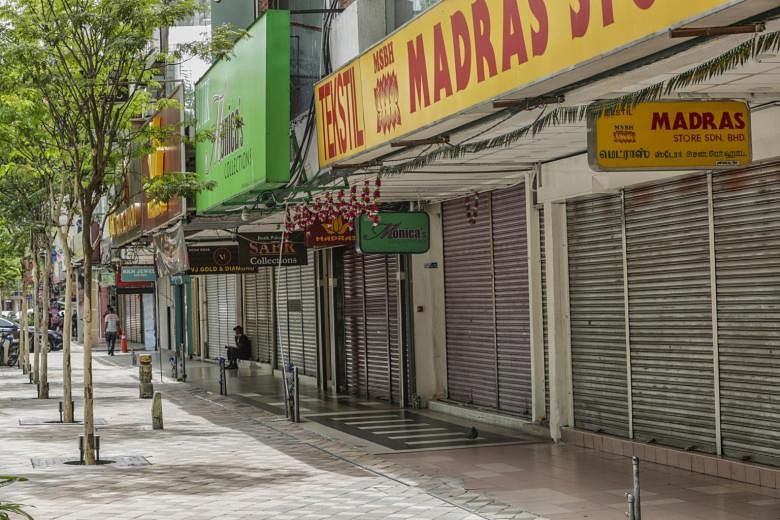Malaysian business owners remain dejected over the bleak prospect of an extended period of coronavirus restrictions despite Prime Minister Muhyiddin Yassin's announcement of a new aid package, which experts say is not enough.
Restaurateur Alia Iman said that although the wage subsidy has helped in the past, she believes her days in business are numbered as most amenities are allowed to operate only from 6am to 8pm.
"Time is money, especially when restaurants like mine can accommodate only takeouts," said the 42-year-old.
"I'm no longer in a position to retain any of my workers any more. I have used up my savings which were supposed to be enough to cover all overhead costs for one year."
The government is now extending its wage subsidy scheme introduced last April to encourage worker retention. It offsets salaries of workers earning less than RM4,000 (S$1,310) a month by RM600, for three months.
The scheme was expanded to cover business owners in the states and regions under the movement control order (MCO).
This was announced when Tan Sri Muhyiddin on Monday unveiled the RM15 billion aid package called Permai, which also provides aid for individuals and includes initiatives to curb Covid-19.
All Malaysian states, except Sarawak, have been placed under the MCO - the country's second - after Covid-19 cases averaged more than 2,500 a day in recent weeks.
Malaysian Trade Union Congress deputy president Mohd Effendy Abdul Ghani told The Straits Times: "I can't say Permai is not a good effort to help the people, but it's not a long-term solution."
He suggested that the government subsidise the cost of a sanitisation or disinfection programme for business operators so they can stay open, rather than give handouts.
Referring to a RM50 million food basket programme being rolled out, he said: "People need more than just one-off handouts. How long can they survive with that anyway?"
Even with the wage subsidy in place, it was reported last year that 221 businesses wound up despite having received the assistance, and 2,713 small and medium-sized enterprises went out of business from March to Oct 30.
Economist Hafiz Nor Sham, who formerly served at the Finance Ministry, pointed out that the aid package entails a reallocation of the RM250 billion stimulus package announced by the government under the first MCO announced in March last year.
He told ST: "I'm of the opinion that it doesn't make a dent... There's no fresh money being injected by the government. In other words, it isn't properly a stimulus in the original sense of the word."
The aid package includes tax relief for Malaysians, but Mr Hafiz said: "When income streams get disrupted, tax cuts can be redundant for a lot of people."
Defending the assistance package, Finance Minister Tengku Zafrul Aziz said the country will not be losing as much compared with the RM2.4 billion lost daily during the first MCO from last March to May, when almost all businesses were forced to close. Malaysia is expected to lose RM600 million daily due to MCO 2.0.
"This MCO is unlike the one in March last year, as five essential sectors are still open; small and medium enterprises such as stalls and stores can still be open," he told reporters on Tuesday.

